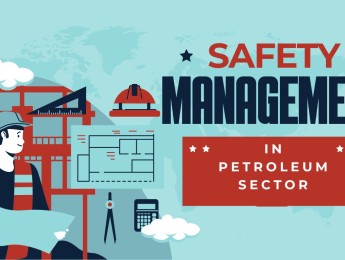Oil and gas facilities managers are required to consider not just the production of their products but also the environment, resources, and tools required to achieve the end result.
Water treatment, surface coverage, and the handling of chemicals and emulsions are top priorities to ensure a quality product. Facilities managers must also cover the health and safety and practical elements of production to support their employees.
In today's world, technology-based solutions are the way forward for many organisations. It’s important to understand the most up-to-date ways to identify and mitigate risks, train employees on the importance of safety procedures, and monitor the performance of machinery and transportation.
Refinement of operations using adequate facilities management tools within this industry is essential to increasing profits, securing contracts, and developing a positive reputation for future business relationships and partnerships.
Upon completion of this course, participants will be able to:
- Develop a good working knowledge of oil and gas industry processes.
- Create risk management procedures based on your current operation.
- Work with new innovative technology that will shape the future of your facility.
- Appreciate new gas and oil treatment technology to secure a better product.
- Train and develop your workforce to utilise the facility in a safe and secure manner.
- Understand crude oil refining processes and monitor changes.
- Familiarise yourself with gas treatment procedures including drilling and offshore concerns.
This course is designed for anyone responsible for maintaining oil and gas production facilities and understanding the health and safety regulations and impacts on the industry. It would be most beneficial for:
- Facilities Managers
- Business Owners
- Operational Chemists
- Project Managers
- Engineers
- Technicians
- Risk Assessors
- Health & Safety Operatives
- Sales Consultants
- Account Managers
- Maintenance Specialists
- Facility Inspectors
This course uses a variety of adult learning techniques to aid full understanding and comprehension. Participants will review videos and documentation to develop an understanding of a variety of different petroleum sites and facilities and develop an accurate picture of the operational aspects which helps them to run smoothly.
Group discussions will be held in order to uncover potential risks and problem areas and create a decision tree of potential solutions and ideas to aim for risk mitigation and continuous improvement. Participants will be introduced to new technologies in the industry and will create project maps to see the benefits of implementing these technologies and changes throughout their own organisation.
Day 5 of each course is reserved for a Q&A session, which may occur off-site. For 10-day courses, this also applies to day 10
Section 1: The Oil & Gas Lifecycle
- Fossil fuel formations.
- The basics of petroleum geology.
- Onshore fossil fuels.
- Offshore trading in fossil fuels.
- Wells and reservoirs - build type and operational structure.
- Explorational wells and their purpose.
- Drilling offshore and directional purposes.
- Testing, risk assessments, and completion.
- Well stimulation and workover.
Section 2: Operational Development & Change
- Fossil fuel chemistry and physical properties.
- The dangers and uses of hydrocarbons.
- Gathering and separation methodology.
- Sin-site processing of surfaces.
- Water practices and procedures.
- Management practices for successful water generation.
- Water treatment plans and safety concerns.
- Acid gas injections and oil recovery.
Section 3: The Chemical Reaction Process, Safety & Risk Management
- Contaminants and safety issues.
- Waste disposal considerations.
- Process and procedure specifications.
- Selection and change criteria.
- Hydrates and gas dehydration.
- Amine gas sweetening and alkanol amine classifications.
- New technology related to acid gas removal.
- Process flow schemes and their uses.
- Designing criteria and risk insight.
- Amine process problems.
Section 4: New Process Implementation
- The Selexol, Fluor, Rectisol, and Purisol physical processes.
- Alkaline salt processing and potassium carbonate implications.
- HiPure combination processes.
- Batch matching using a molecular sieve.
- Iron chelate and LO-CAT processes.
- Liquid hydration treatment and risk mitigation.
Section 5: Downstream Operations & Reviewing Your Facility
- Downstream operations in the petroleum industry.
- Crude oil processing and treatment.
- Refining your products and operations.
- Oil and gas processing and pricing.
- Types of energy and global statistics.
- Making changes to your organisation based on current risks.
- Implementing new technology to assist with downstream operations.
Upon successful completion of this training course, delegates will be awarded a Holistique Training Certificate of Completion. For those who attend and complete the online training course, a Holistique Training e-Certificate will be provided.
Holistique Training Certificates are accredited by the British Assessment Council (BAC) and The CPD Certification Service (CPD), and are certified under ISO 9001, ISO 21001, and ISO 29993 standards.
CPD credits for this course are granted by our Certificates and will be reflected on the Holistique Training Certificate of Completion. In accordance with the standards of The CPD Certification Service, one CPD credit is awarded per hour of course attendance. A maximum of 50 CPD credits can be claimed for any single course we currently offer.
- Course Code IND01-122
- Course Format Classroom, Online,
- Duration 5 days














